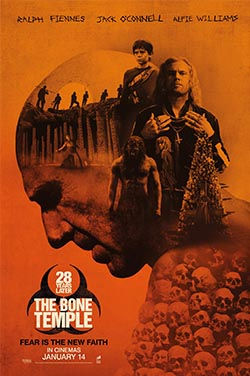The Coldest Game Movie Review
- Rob Cain

- May 5, 2020
- 3 min read

Released: 8th February 2020
Length: 96 Minutes
Certificate: 15
Director: Łukasz Kośmicki
Starring: Bill Pullman, Lotte Verbeek, James Bloor and Robert Więckiewicz
Butting heads over idealogies and politics, the United States and the USSR generated many historical stories in their bitter feud against each other. The Coldest Game, another entry in the Cold War thriller department, attempts to create a more psychological retelling of events. Unfortunately, it doesn’t go nearly deep enough to make an impact.

In the lead-up to the Cuban Missile Crisis in 1962, a seemingly oddball effort from the CIA to go one better than the Soviet Union is taking place in Poland. It’s a chess tournament between the Russian grandmaster Alexander Gavrylov (Evgeniy Sidikhin) and an American opponent. With a previous contender having already backed out, the US government turns to Professor Joshua Manskey (Bill Pullman). Taking place in and around the streets of Poland, we see both sides of the ideological war play out against the backdrop of a long-standing board game. While meant to represent the conflict between the United States and Russia in a less overt environment, the narrative here only achieves a surface level approach. The tension is there to an extent, but due to underdevelopment, you don’t find yourself gripped by the action. In addition, while it works in both perspectives, the greater conflict happening around the world is rarely explored. For example, there’s a effort to discuss the nuclear arms race, but it doesn’t gel fluidly with the more subdued tale that takes place. Placed at the end of the film is a set of title cards that encourages the viewer to reflect on the film in relation to current events. This felt very jarring, considering how the The Coldest Game doesn’t follow through on its thematic undertones.

What does work well in The Coldest Game is Bill Pullman’s performance; consumed by alcoholism and under seemingly constant pressure, Manskey’s role in besting the USSR mentally in Poland is constantly on display. Sadly everyone else surrounding him is extremely basic; we hardly learn much about the other characters and this is most true for the American officials who escort the professor to the match. Had we seen more backstory and motivation to these people, particularly Agent Stone (Lotte Verbeek) we would have cared more about their beliefs and reasons for challenging the Soviets to a chess match. Both the Americans and Soviet mediators have their staunch commitment to winning the day, but we never go beneath the surface of any of them, making for a mediocre set of characters. The one possible exception to the rule is the hotel director Alfred, who forms a friendship with Manskey throughout the film.

At the very least it’s placed under an authentic umbrella; The Coldest Game continues its contemporary’s commitment to presenting the 1960s in a realistic and capable manner. Whether it’s vehicles, costume design of the methods of the chess tournament, the film is another strong window into the past, as the cinematography shows the audience around the environments. The film’s greatest claim to fame is the technology used by the agencies; with disagreements on a knife edge, we cut back to an isolated glass cell drowned out by droning feedback to keep the Russians from listening in. It’s too bad this same attention to detail wasn’t applied to other elements.
While it may hint at an intriguing tale, The Coldest Game is a big let-down in most regards, failing to deepen its story and characters, while offering a strangely disconnected message on the dangers of nuclear war. With so many superior Cold War thrillers available, this smaller scale production doesn’t have much of a leg to stand on. You’re better off looking elsewhere.
Rating: 2/5 Stars (Disappointing)










Comments